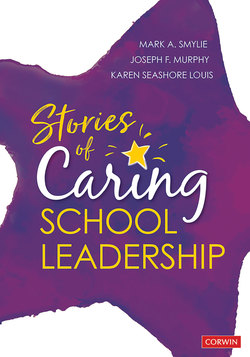Читать книгу Stories of Caring School Leadership - Mark A. Smylie - Страница 25
На сайте Литреса книга снята с продажи.
Problems and Pitfalls
ОглавлениеCaring does not always function in a straightforward or positive manner, even when it is enacted with the best intentions. Boundaries must be negotiated. Relationships need to be monitored and managed. Caring can cause embarrassment and make persons feel vulnerable. If not careful, caring can evoke a sense of obligation that is inappropriate or impossible to fulfill. Caring can also lead to objectification—people can be seen as inanimate problems to solve and relationships can become contrived.
Moreover, acting on particular virtues can create dilemmas as one virtue may bump up against another. According to education ethics scholars Joan Shapiro and Jacqueline Stefkovich, such dilemmas present ethical choices to be managed.17 For example, caring can create tension between acting in the best interests of an individual student and abiding by the rules and policies of the school or district. Acting in the best interests of individuals and groups can create tensions with the interests of the whole and with values of fairness and equal treatment of all.
17Shapiro and Stefkovich (2010).
Some virtues that drive caring can bring both benefits and unexpected problems at the same time. For example, psychologist Paul Bloom observes that empathy can be a positive force on how we act and interact with others by making it possible to resonate with their positive and negative feelings.18 At the same time, empathy can be superficial and biased. It can set a cognitive trap by which presumptions can be reinforced to the detriment of another person. Neuroscientists Tania Singer and Olga Klimecki contend that through empathy we feel happy when we vicariously share the joys of others and we feel pain when we share the suffering of others.19 Shared feelings of pain and suffering can be difficult, sometimes leading to stress and distress, which then can lead to negative feelings, withdrawal, antisocial behavior, blame, and burnout. To guard against this prospect, empathy must be linked with compassion—that is, to feelings of warmth, concern and care for another, and motivation to improve the other’s well-being. Compassion directs empathic thinking toward positive action and helps avoid empathy’s pitfalls and problems.
18Bloom (2018).
19Singer and Klimecki (2014).
Caring can lead to unintended and potentially harmful consequences. For the ones caring, it can be extremely demanding and psychologically, emotionally, and physical stressful. Caring can result in what communications scholars Katherine Kinnick, Dean Krugman, and Glen Cameron call compassion fatigue, the emotional overload that occurs when one gets overinvolved, overextended, and overwhelmed by the emotional demands imposed by others.20 Finally, caring can spawn unintended harmful consequences for the ones cared for. Caring relationships can develop inappropriate dependencies, codependencies, and transference. They can result in unwarranted control, subjugation, and infringement of privacy, autonomy, and rights. In the worst instance, the interpersonal closeness of caring can create opportunities for abuse and victimization. Without careful attention, without mindfulness and self-regulation, and without the monitoring and watchful support of others, the risk of negative consequences can emerge.
20Kinnick, Krugman, and Cameron (1996).
